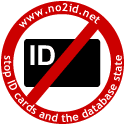Whilst on holiday in Catalunya, I was surprised to see web addresses ending in .cat. I thought that there were the original .com and friends created in 1985, a few new ones like .info and the two letter country qualifiers but no. On further research there are all these (and how I think they should be used)…
- .arpa—A special one for technical purposes.
- .mil—One of the first and reserved for the US military.
- .edu—Similar vintage for the US universities.
- .gov—Similar for the US government.
- .com—early pandering to the commercial world which now ought be reserved for commercial organisations that are international in scope.
- .org—for those international organisations which are not commercial.
- .net—for those organisations who are directly involved in the internet infrastructure.
- .int was created in 1988 for international organisations like Nato.
- And a load of new ones created in 2000—.info (general), .biz (general), .aero (aero industry), .name (for individuals, clearly assuming that everyone has a unique name!), .pro (for professionals, whatever that means), .coop (for cooperatives) and .museum (self explanatory). The general ones rapidly degenerated into spam wells but I suppose the others may serve a useful purpose.
- Some later still—.mobi (sites for mobile devices), .jobs (for recruiting), .travel (for the travel industry) suffer similar problems.
- Some proposed new ones like .kids, .xxx, .africa, .law and many more have failed to gain recognition but may be adopted at a later date.
On top of these are the two letter country codes, which mostly follow the ISO codes + .eu for general European Union interests. .cat for the Catalan language seems to have been accorded special status. It would have made more sense for this to have been .cat.eu but they have pulled off a coup.
There are some anomalies in the country codes as well. For instance the United Kingdom has .uk, but also has the official ISO .gb which would be incorrect and seems not to be used. .su (Soviet Union) is still in use despite no longer existing as an entity.






 Webmaster
Webmaster